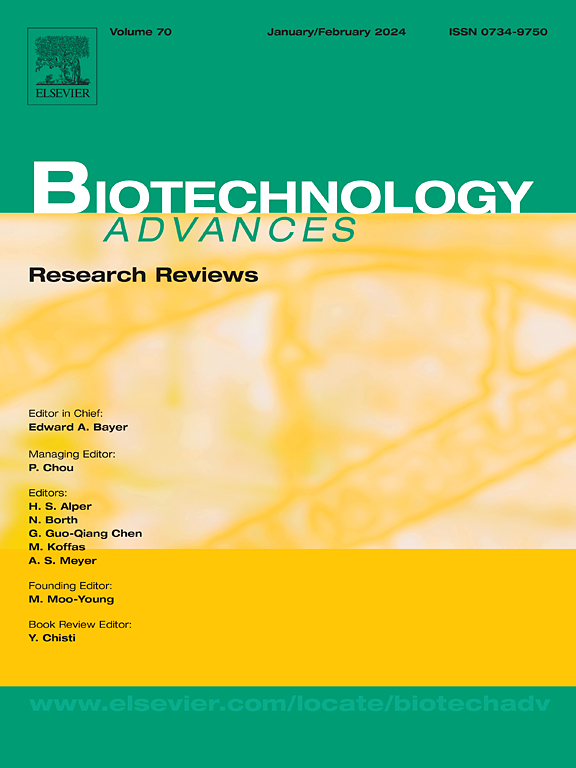Cell-free systems: A synthetic biology tool for rapid prototyping in metabolic engineering
IF 12.1
1区 工程技术
Q1 BIOTECHNOLOGY & APPLIED MICROBIOLOGY
引用次数: 0
Abstract
Microbial cell factories provide sustainable alternatives to petroleum-based chemical production using cost-effective substrates. A deep understanding of their metabolism is essential to harness their potential along with continuous efforts to improve productivity and yield. However, the construction and evaluation of numerous genetic variants are time-consuming and labor-intensive. Cell-free systems (CFSs) serve as powerful platforms for rapid prototyping of genetic circuits, metabolic pathways, and enzyme functionality. They offer numerous advantages, including minimizing unwanted metabolic interference, precise control of reaction conditions, reduced labor, and shorter Design-Build-Test-Learn cycles. Additionally, the introduction of in vitro compartmentalization strategies in CFSs enables ultra-high-throughput screening in physically separated spaces, which significantly enhances prototyping efficiency. This review highlights the latest examples of using CFS to overcome prototyping limitations in living cells with a focus on rapid prototyping, particularly regarding gene regulation, enzymes, and multienzymatic reactions in bacteria. Finally, this review evaluates CFSs as a versatile prototyping platform and discusses its future applications, emphasizing its potential for producing high-value chemicals through microbial biosynthesis.
无细胞系统:代谢工程中快速成型的合成生物学工具。
微生物细胞工厂使用具有成本效益的基质为石油基化工生产提供了可持续的替代品。深入了解它们的新陈代谢对于利用它们的潜力以及不断努力提高生产力和产量至关重要。然而,构建和评估大量的遗传变异是费时费力的。无细胞系统(CFSs)是快速构建遗传电路、代谢途径和酶功能的强大平台。它们提供了许多优点,包括最大限度地减少不必要的代谢干扰,精确控制反应条件,减少劳动力,缩短设计-构建-测试-学习周期。此外,在CFSs中引入体外区隔化策略,可以在物理分离的空间中进行超高通量筛选,从而显着提高原型效率。本文综述了利用CFS来克服活细胞原型限制的最新例子,重点是快速原型,特别是在基因调控、酶和细菌中的多酶反应方面。最后,本文评价了CFSs作为一种多功能原型平台,并讨论了其未来的应用,强调了其通过微生物生物合成生产高价值化学品的潜力。
本文章由计算机程序翻译,如有差异,请以英文原文为准。
求助全文
约1分钟内获得全文
求助全文
来源期刊

Biotechnology advances
工程技术-生物工程与应用微生物
CiteScore
25.50
自引率
2.50%
发文量
167
审稿时长
37 days
期刊介绍:
Biotechnology Advances is a comprehensive review journal that covers all aspects of the multidisciplinary field of biotechnology. The journal focuses on biotechnology principles and their applications in various industries, agriculture, medicine, environmental concerns, and regulatory issues. It publishes authoritative articles that highlight current developments and future trends in the field of biotechnology. The journal invites submissions of manuscripts that are relevant and appropriate. It targets a wide audience, including scientists, engineers, students, instructors, researchers, practitioners, managers, governments, and other stakeholders in the field. Additionally, special issues are published based on selected presentations from recent relevant conferences in collaboration with the organizations hosting those conferences.
 求助内容:
求助内容: 应助结果提醒方式:
应助结果提醒方式:


